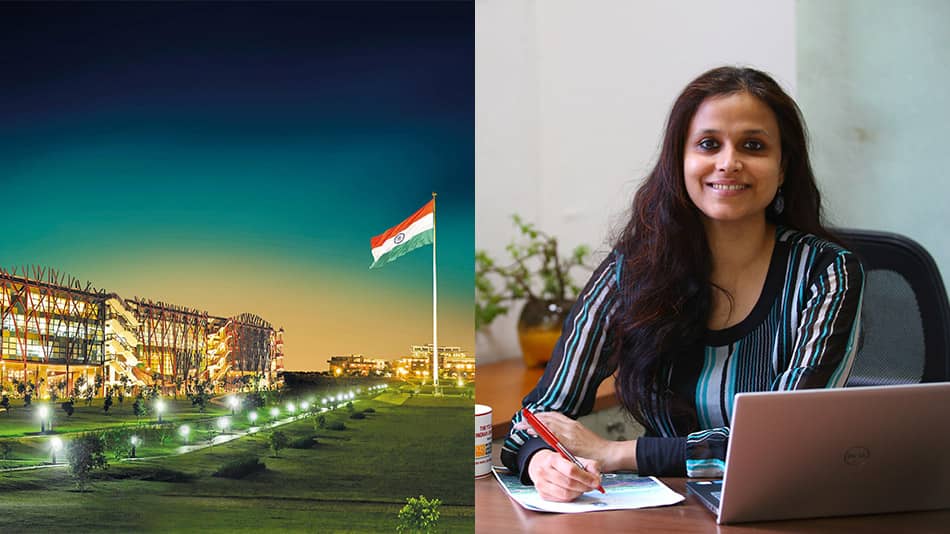Upasana Mahanta, professor at Jindal Global Law School and dean, admissions and outreach, OP Jindal Global University (Institution of Eminence Deemed To Be University), speaks on the significance of social sciences and the need to rethink career choices.
Why is there a growing need for more students to study social sciences?
Since Independence, there has been an inclination towards engineering, medicine and the pure sciences to build a rapidly industrialising India. However, modern-day problems call for a look beyond the purview of pure sciences. For example, India’s COVID vaccination drive and overall pandemic response require a multi-disciplinary approach, including public policy, psychology, communication, supply chain management. Even the National Education Policy 2020 urges educational institutions to do away with compartmentalisation of disciplines.
Students are often prodded by their parents to study medicine or engineering. How can this be countered?
One of the primary reasons students (or parents) opt for medicine and engineering as career options is that the student can tread a path of least resistance in elevating one’s social and economic status while attaining their career goals. Career opportunities outside STEM are usually perceived as underpaid avenues and students do not always get the support to follow their passions. To counter this mindset is difficult, but not impossible. We see an increasing trend of medicine and engineering students choosing a different career stream post after graduation and looking for something niche. The job market demands each student to be different and bring diverse knowledge to the table, this is made possible by the social sciences. Therefore, a multi-disciplinary education pivoted on complex problems through the lens of science, law and policy, humanities and social sciences is important.
How do the cut-off percentages in STEM studies and social sciences affect the admission process?
Like many other private, new-age universities in India, Jindal Global University does not believe in judging a student only based on marks. A student is a person, not just a percentage. As a result, our admission process is holistic. It takes into account the student’s abilities in critical thinking, verbal and written communication skills as well as motivation to study a particular discipline. Consequently, cut-off percentages in STEM and non-STEM disciplines do not affect the admission process at JGU.
What new-age career prospects are opening up for students of social sciences?
The founders of Apple, Tesla and Alibaba are all social science graduates. There are countless other avenues for social science graduates to make their mark. A study in any of the disciplines in social sciences allows students to critically examine the state of society and how it can be made better for all. This opens avenues in law, business, communication, finance, psychology, creative arts and any career that has an impact on how society lives and thrives.
What are the opportunities in research and higher studies?
Research in social sciences is constantly evolving to respond to the growing complexities of the world that we live in. Technological advancements, digitisation of education and demands of an ever-changing socio-political and cultural milieu provide new and exciting research possibilities and opportunities, Mindful of this, JGU offers a wide range of master’s programmes in law, business, diplomacy, public policy, psychology, and economics. Our curriculum design and assessment processes are devised to enable students to think critically, engage with existing literature, and work towards contributing to existing knowledge.
Are there gaps in academic policies and social awareness in India that somehow limit social sciences to flourish?
While the National Education Policy 2020 has set the stage for social sciences to flourish, I believe it is awareness and stigma that limit its growth. For example, most parents would want their children to become engineers or doctors and that creates a very unhealthy hierarchy between disciplines that are equally important. Some of the most sought-after careers in the midst of the COVID-19 pandemic include graphic designers, digital marketers and content writers. As we slip more and more into a digital lifestyle, we will hopefully realise the emotional and humanist applications of technology where research and application of social sciences will be more valuable.
Social sciences and STEM are also seen as female and male gender-oriented courses, respectively. Has there been a change in this gender disparity and also in how humanities as a field of study is perceived in India?
This is an extremely antiquated and dated view, which bears no merit at all in present times. These perceptions must be constantly challenged. The gender of a student has no bearing on success in a STEM or non-STEM career. While this gender disparity exists and is changing, we must move away from assigning careers based on gender.
What steps is OP Jindal Global University taking to promote the growth of social science studies?
Since its inception in 2009, the OP Jindal Global University has strived for excellence in higher education within social sciences, arts and humanities. Each of our programmes is interdisciplinary in nature and brings out the multidisciplinary solutions required for modern-day problems. We strive to achieve this excellence by engaging the highest quality of faculty members anywhere in India, by ensuring that our curricula are updated and future- ready and by equipping our students with the universal skills necessary to succeed in whatever career path they choose.











